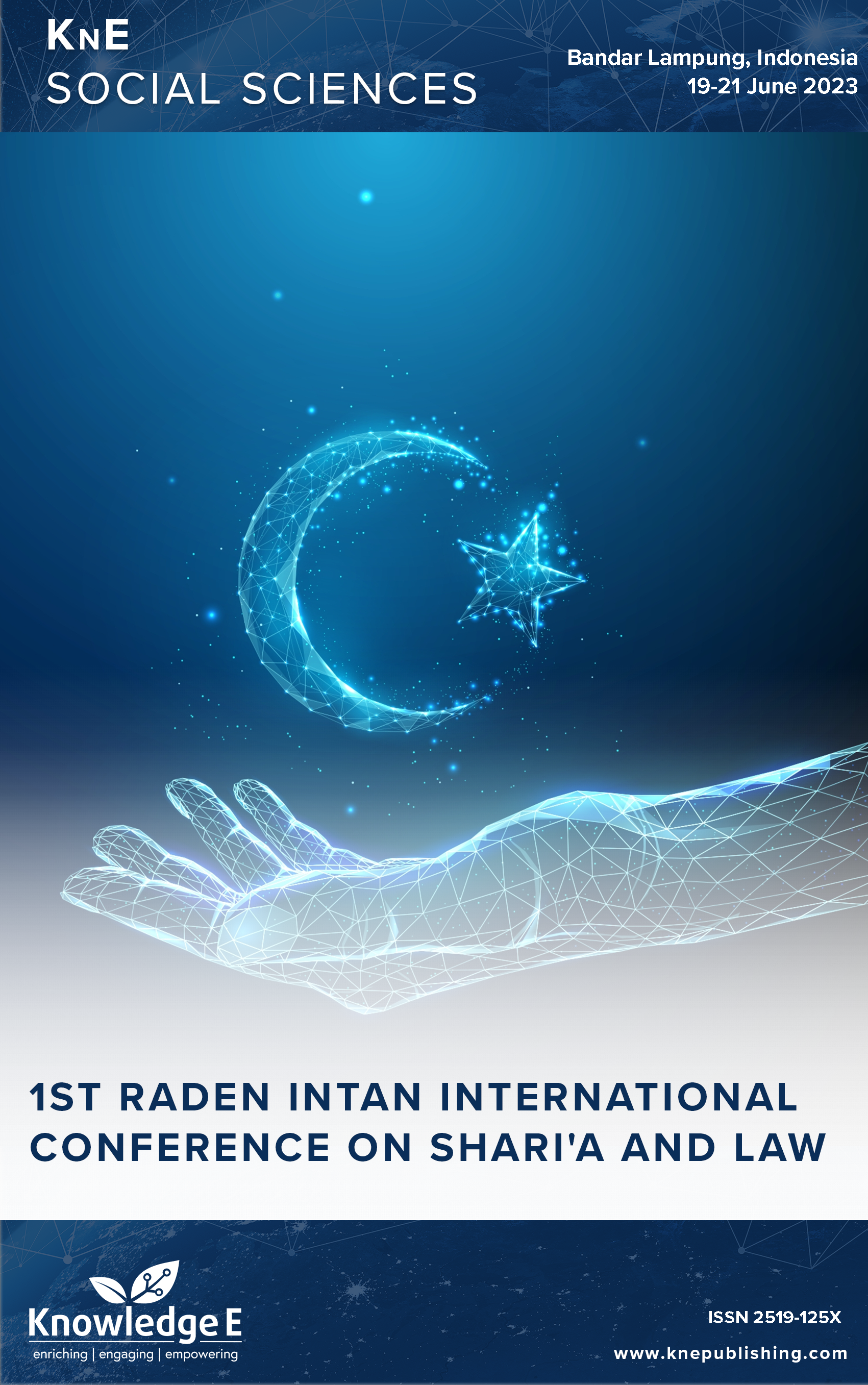Implementation of Law Number 21 of 2008 Concerning Sharia Banking Against Sharia Financial Institutions
DOI:
https://doi.org/10.18502/kss.v9i2.15002Abstract
The role of Law Number 21 of 2008 concerning Islamic Banking for Islamic financial institutions is very large. This is because Islamic financial institutions (LKS) currently have legal certainty to be able to carry out Islamic economic activities in Indonesia. The existence of the Sharia Banking Law provides an answer to the sustainability of the Islamic economy in Indonesia as a whole, including the activities of Islamic financial institutions in the form of banks and non-banks. According to the normative juridical point of view, the legal basis for sharia economic dispute resolution in Indonesia is Law Number 3 of 2006 concerning the Religious Courts and Law Number 4 of 2004 concerning Judicial Power as a form of upholding legal justice for the community in carrying out economic activities.
Keywords: financial, banking, Sharia institutions
References
Taufik K. The role of the Sharia supervisory board against Sharia Compliance in Sharia Banking, Surya Kencana Journal One: Dynamics of Legal and Justice Issues, Vo.8, No.2, October 2017, p.51 n.d.
Arief R. Permana and AP. Overview of the Syrian Banking Law, Legal and Central Banking Bulletin, Vo. 6, No.2, August 2008, p.1-3 n.d.
Quoted. from https://www.ojk.go.id/kanal/pages.html on 18 April 2023 at 12:37 WIB n.d.
Quoted. from https://www.ir.bankbsi.co.id/corporate_history.html on 18 April 2023 at 12:38 WIB n.d.
Sefta Kurniansyah, Tulus Suryanto, Heni Noviarita. The influence of Islamic service quality on study customer satisfaction at Islamic Commercial Banks in Lampung Province, Journal: Islamic Economics Journal, Vol.6, No.2, December 2020, p.194 n.d.
Sugiono. Quantitative, qualitative and R&D research methods. Bandung: Alfabeta; n.d.
Nazir M. Research methods. Bogor: Ghalia Indonesia; 2005.
Moleong LJ. Qualitative research methods in theory and practice. Jakarta: Rajawali Press; 2015.
Sugiono. Qualitative research methods; theory and practice. Bandung: Alfabeta; 2016.
Idrus M. Social science research methods. Yogyakarta: Erlangga; 2009.
Suryani. Implications and challenges of birth of Law No. 21 of 2008 concerning Sharia Banking. J Iqtishadia. n.d.;8:357–8.
Putri AK, Antomi B, Meilisa P. Tri Amar Prasetyo HN. Determination of Islamic Banking in Indonesia. J Bus Entrep J. 2021;2:45. DOI: https://doi.org/10.57084/bej.v2i1.1015
Amir Mahmud R. Islamic Banks: Theory, policy and empirical studies in Indonesia. Jakarta: Erlangga; 2010.
Article 1, numbers 7 and 10, Law Number 21 of 2008 concerning Islamic Banking n.d.
Akram A. The history of religious courts in Indonesia. J Al Manahij. 2008;2:104–5. DOI: https://doi.org/10.24090/mnh.v2i1.3699
Mansyur A. Legal aspects of Islamic Banking and its implementation in Indonesia. J Leg Dyn V. n.d.;11:69.
Azizy Q. National Law of Eclecticism of Islamic Law and General Law. Jakarta; 2004.
Badrusaman B. Implementation of Sharia Economic Law in Islamic Financial Institutions. J J Islam Econ Bus. n.d.;2:87.
Ali Z. Sharia Banking Law. Jakarta: Sinar Graphics; 2010.
Budiono A. Application of Sharia Principles in Islamic Financial Institutions. J Law Justice. n.d.;2:88.
Article 55 Law Number 21 of 2008 concerning Sharia Banking n.d.
Article 56 Law Number 21 of 2008 concerning Islamic Banking n.d.
Article 57 Law Number 21 of 2008 concerning Islamic Banking n.d.
Article 58 Law Number 21 of 2008 concerning Islamic Banking n.d.
Supreme Court Regulation Number 1 of 2016 concerning amendments to PERMA Number 1 of 2008 concerning Mediation Procedures n.d.

